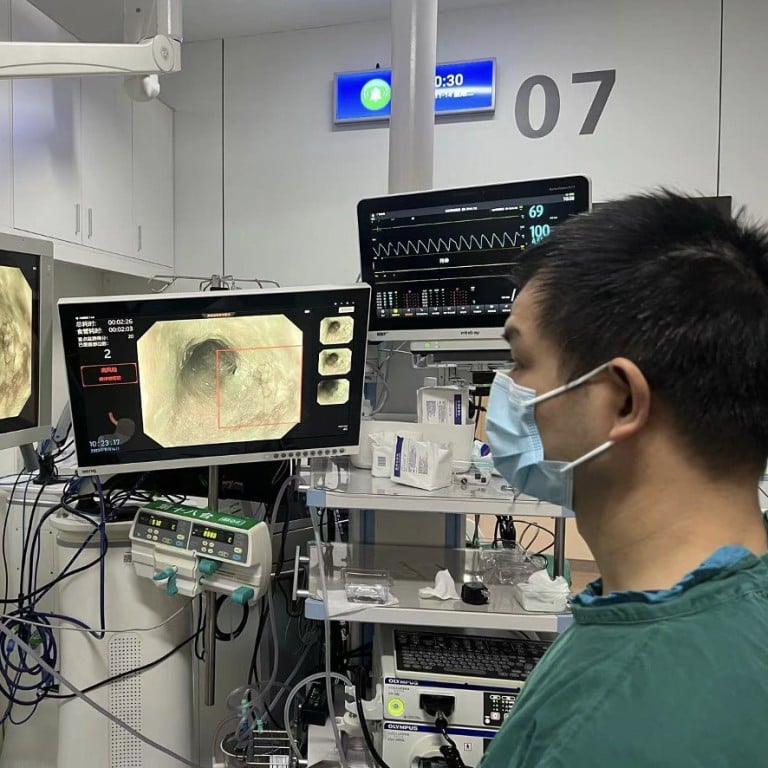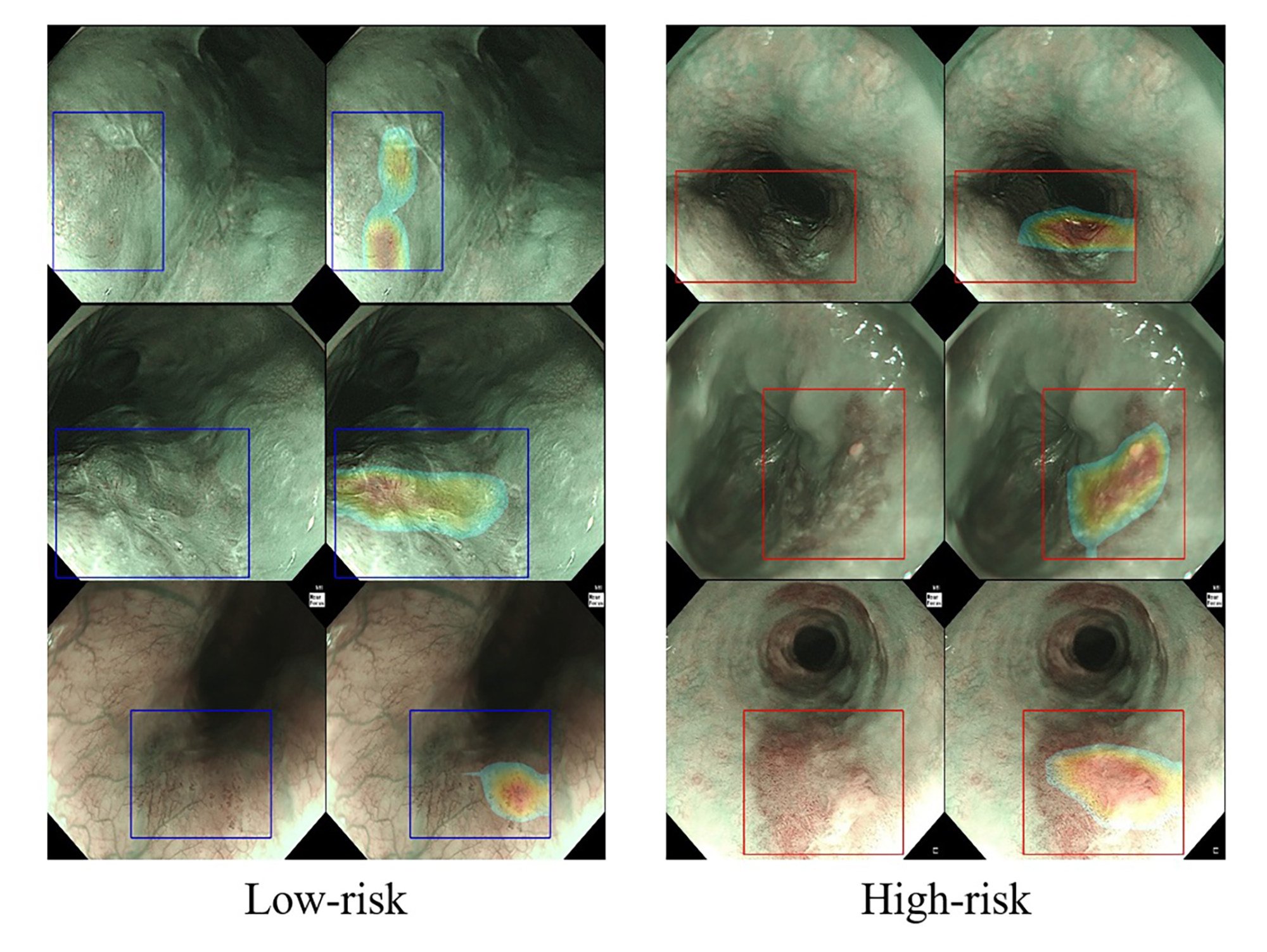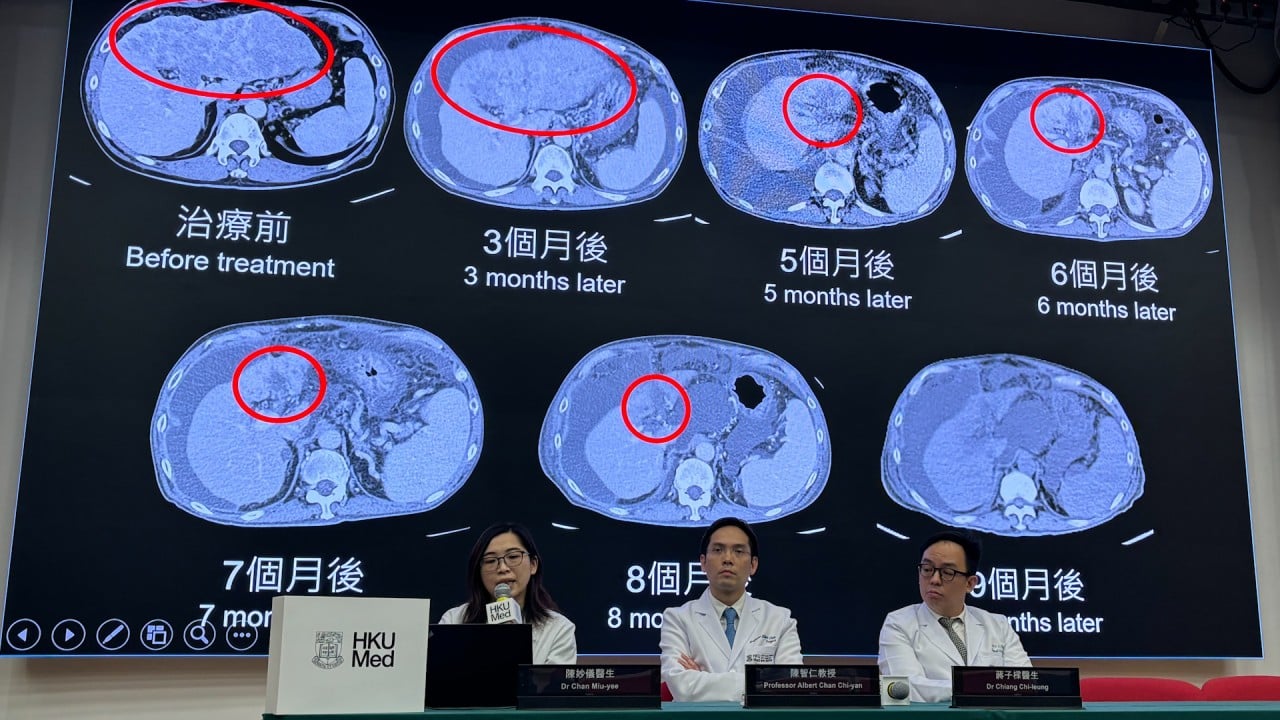
Chinese AI innovation identifies oesophageal cancer lesions at double rate of doctors’ assessment by eye: paper
- Algorithm that highlights lesions on the gullet for doctors during an endoscopy is now used in hundreds of hospitals in China
- Early detection is key as the cancer has five-year survival rate of more than 90 per cent when treated endoscopically or surgically before symptoms show
The researchers said the algorithm was now used in hundreds of hospitals across China. It works by highlighting lesions on the gullet for doctors during an endoscopy – a medical procedure to observe the digestive tract using a camera – in real time on a monitor.
“Deep-learning assistance may enhance early diagnosis and treatment of oesophageal cancer and may become a useful tool for oesophageal cancer screening,” the team wrote in an article published in the peer-reviewed journal Science Translational Medicine on April 17.
The researchers are from Taizhou Hospital Affiliated to Wenzhou Medical University, Renmin Hospital of Wuhan University, Zhejiang University School Medicine Affiliated Hangzhou Cancer Hospital and Wenling First People’s Hospital in Taizhou.
Oesophageal cancer ranks as the seventh most common cancer globally and the sixth leading cause of cancer-related death. Asia, especially East and Central Asia, has a higher incidence of the disease than other parts of the world.
Early detection is key because oesophageal cancer has a five-year survival rate of more than 90 per cent when treated endoscopically or surgically before symptoms show. But most patients develop an advanced stage of the disease once they start experiencing symptoms.
While the cancer is often asymptomatic, tumours and precancerous lesions can be detected with an endoscopy. To help doctors using an endoscope to identify these signs, the team looked to deep-learning technology, which excels at extracting tiny visual features and classifying images.
They trained the machine with more than 190,000 oesophageal images gathered from clinics in China to allow it to identify lesions with high accuracy and predict if the lesions, which it marks with boxes for doctors to assess, are of high or low risk.
The team tested the system on more than 3,000 patients in a clinical trial between 2021 and 2022. Half the group underwent AI-assisted endoscopies while the rest had a regular procedure.
The AI group had a detection rate of 1.8 per cent, compared with the control group at 0.9 per cent, according to the study. The scientists said the increase was “a huge improvement that may have substantial clinical implications for improving patient prognosis”.

Senior author Mao Xinli, chief physician in the gastroenterology department of Taizhou Hospital Affiliated to Wenzhou Medical University, said the accuracy of diagnosis from endoscopy had been largely linked to the proficiency of the endoscopist.
“Doctors with more experience of performing endoscopies tend to have sharper eyes to identify early-stage cancer abnormalities than those with less experience,” she said.
“This technology is a great tool to boost early-stage cancer detection ability and improve patient prognosis.”
First author Li Shaowei, an associate research fellow at Taizhou Hospital Affiliated to Wenzhou Medical University, said the new AI function was compatible with existing endoscopy systems used by hospitals.
“The use of the AI has been expanded from one to a few hundred hospitals across the country. We have received positive feedback for its high sensitivity, specificity and accuracy,” Li said.



